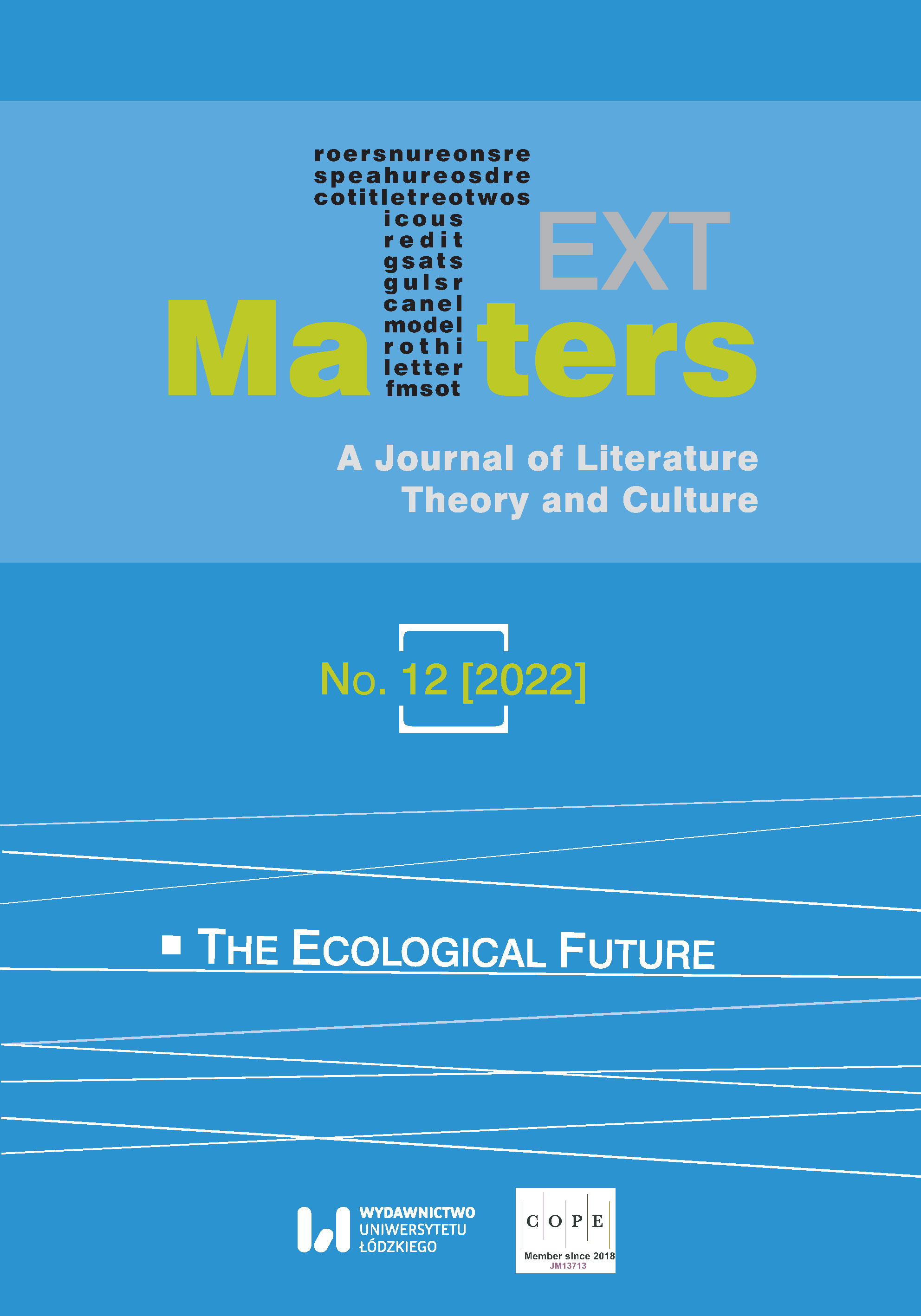“The Paradise of How It Has to Be”: Writing About the Future of the Earth in a Time of Decline. A Conversation with William deBuys
DOI:
https://doi.org/10.18778/2083-2931.12.08Downloads
References
Cajete, Gregory, editor. A People’s Ecology: Explorations in Sustainable Living—Health, Environment, Agriculture, Native Traditions. Clear Light, 2000.
Google Scholar
deBuys, William. A Great Aridness: Climate Change and the Future of the American Southwest. Oxford UP, 2011. https://doi.org/10.1093/oso/9780199778928.001.0001
Google Scholar
DOI: https://doi.org/10.1093/oso/9780199778928.001.0001
deBuys, William. Enchantment and Exploitation: The Life and Hard Times of a New Mexico Mountain Range. U of New Mexico P, 1985.
Google Scholar
deBuys, William. The Last Unicorn: A Search for One of Earth’s Rarest Creatures. Little, Brown & Co., 2015.
Google Scholar
deBuys, William. The Trail to Kanjiroba: Rediscovering Earth in an Age of Loss. Seven Stories, 2021.
Google Scholar
deBuys, William. The Walk. Trinity UP, 2007.
Google Scholar
deBuys, William, editor. Seeing Things Whole: The Essential John Wesley Powell. Island, 2001.
Google Scholar
deBuys, William, and Alex Harris. River of Traps: A New Mexico Mountain Life. Trinity UP, 1990.
Google Scholar
deBuys, William, and Joan Myers. Salt Dreams: Land and Water in Low-Down California. U of New Mexico P, 1999.
Google Scholar
deBuys, William, and Don J. Usner. Valles Caldera: A Vision for New Mexico’s Nature Preserve. Museum of New Mexico, 2010.
Google Scholar
Stuart, David E. Anasazi America: Seven Centuries on the Road from Center Place. U of New Mexico P, 2000.
Google Scholar
Weber, David J., and William deBuys. First Impressions: A Reader’s Journey to Iconic Places of the American Southwest. Yale UP, 2017. https://doi.org/10.2307/j.ctv1bvnf6m
Google Scholar
DOI: https://doi.org/10.2307/j.ctv1bvnf6m
Published
How to Cite
Issue
Section
License

This work is licensed under a Creative Commons Attribution-NonCommercial-NoDerivatives 4.0 International License.













